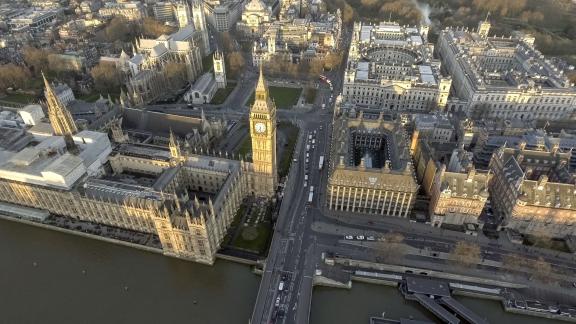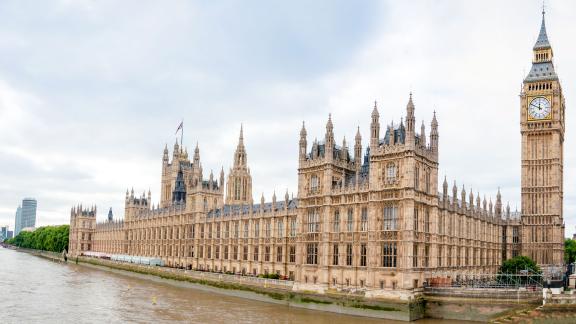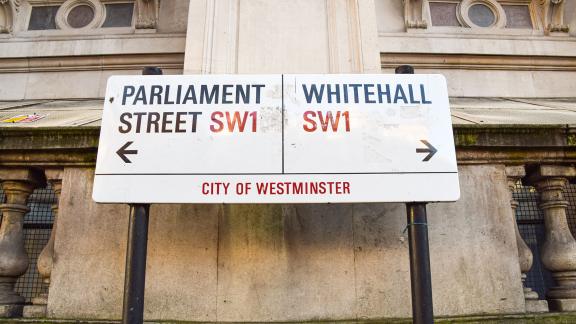Health and care bill: Lords Committee Stage

Background
Since the publication of the white paper, Integration and innovation: working together to improve health and social care for all, in February 2021, the NHS Confederation has continually engaged with health leaders to hear their thoughts on the proposals.
Our members have told us that their key concerns about the bill are:
- the proposed new powers for Secretary of State for Health and Social Care to become responsible, in law, for local service reconfigurations
- the need for stronger checks to be put in place to assess and project future workforce needs across the NHS.
If you would like to have a further briefing from us, or if you plan to speak in the debate, please do get on touch with Caitlin Plunkett-Reilly, external affairs manager (public affairs).
NHS Confederation view
The NHS Confederation largely supports the Health and Care Bill. There is clear consensus across our membership that the future of health and care must be based on collaboration and partnership working at a local level, which this Bill facilitates.
The Bill is, in most part, based on recommendations from NHS England and Improvement (NHSEI), as well as local health and care leaders, to remove legislative barriers to the local integration of care services.
In practice, this integration is already underway across England. In many ways, the legislation is therefore catching up with what is happening on the ground.
Our members – leaders across the NHS – are in agreement that the Bill should be as permissive as possible. It should act as an enabler of integration and local flexibility, empowering local leaders to make decisions in the best interests of their local populations rather than an overly prescriptive set of centralised rules. As such, we urge Peers not to support amendments that would stipulate further duties on ICSs, as this would undermine their ability to do so.
Our primary concern is the proposed introduction of unchecked new powers that would allow Secretary of State to intervene in local service reconfiguration, despite there already being an established process in place. Health leaders are concerned if these powers remain in the Bill in their current form, they will undermine progress towards integration, transparency, patient safety and quality of care.
We therefore urge Peers to support amendments 179-183 to Schedule 6 in the name of Baroness Cumberledge that would put critical checks and balances on the powers Secretary of State would have over local reconfigurations.
Our members are also concerned about the Powers of Direction the Bill is due to give the Secretary of State, the need for the part of the legislation regarding workforce to be strengthened, and the need for the statutory duties on Integrated Care Boards (ICBs) to be kept to a minimum.
Members of our Mental Health Network would like to see some further duties on ICS with regard to the provision of mental health services.
For further information on any of the issues raised in this briefing, please contact caitlin.plunkett-reilly@nhsconfed.org.
Local reconfigurations (Schedule 6)
Our members most significant concern regarding the Health and Care Bill is the significant and largely unchecked new powers for the Secretary of State to intervene at any stage of a local service reconfiguration, with no minimum set of information requirements on which to base such a decision.
We believe this risks undermining progress towards integration in the following ways:
- The ability of hospitals, GP surgeries, clinics and other local NHS organisations to make important and sometimes difficult decisions about the services they provide is significantly reduced. This takes away local expert accountability, which is a key aspiration of the Bill.
- Without clinical advice, local input, or public transparency over local service reconfiguration decisions, the quality and safety of patient care may be at risk.
- The current wording of the Bill would allow the Secretary of State to intervene, with no limitations, in a decision on local services for political reasons
- Empowering local health and care leaders to make service decisions around the needs of their local communities is critical to meeting rising demands. Allowing central intervention to override local decisions undermines this principle
80% of our members disagreed with the statement ‘the new powers for the Secretary of State in the Health and Care Bill will benefit patients’ when we surveyed them last year.
At Second Reading, concerns about these new powers for Secretary of State were raised by a number of Peers from across the House. Some of the contributions included:
Baroness Merron
Extensive new powers for the Secretary of State, which give rise to deep concern. These extend to direct involvement in service reconfigurations, which could be as purely operational as moving a clinic a few yards down the road.
Lord Stevens
In respect of the Secretary of State’s powers, care is needed to ensure that this does not end up inadvertently centralising a number of decisions on service configurations that are best made locally.
Baroness Harding
It is right that Ministers who account to Parliament daily on NHS issues should be able to direct the NHS to act, but it is also important that we have the right safeguards in place, especially when the inevitably short-term pressures of politics conflict with the longer-term realities of science.
Baroness Cumberlege
I am also concerned about the extensive powers of the Secretary of State to intervene in local configurations…
Baroness Walmsley
There is more than a little tension between the Government’s stated objective of being broadly permissive towards the ICSs and giving more power to the Secretary of State, especially the power to intervene at an earlier stage in local service configuration, and even to propose a new local reconfiguration himself or herself. That is going too far and is against the spirit of the Bill.
Lord Adebowale
These powers are not necessary. They work against the very principle of this Bill: to distribute leadership so that it is as near as possible to the people who need health and social care.
The amendments we support would ensure the Secretary of State would be legally required to consider clinical advice about changes to clinical services. It would also require them to consider the view of local health overview and scrutiny communities – ensuring accountability to local communities – and set out why intervention is in the public interest to ensure transparency.
Our ask - we urge Peers to support the amendments 179-183 to Schedule 6 on the marshalled list of amendments in the name of Baroness Cumberledge:
- Amendment 179 that changes the definition of a reconfiguration of NHS services to ensure that it only covers significant changes to NHS services.
- Amendment 180 that would require the Secretary of State to consult any relevant Health Overview and Scrutiny Committee, all relevant organisations delivering the NHS services under consideration and the Integrated Care Board, and to publish those submissions.
- Amendment 181 would require the Secretary of State to make a decision within three months.
- Amendment 182 would require the Secretary of State to publish a statement demonstrating that any decision they have made on a reconfiguration proposal is in the public interest and has been taken with consideration of its positive impact on patient safety.
- Amendment 183 that would remove the Secretary of State’s power to act as the catalyst for a reconfiguration.
These amendments are also supported by:
- British Dental Association
- British Medical Association
- Centre for Governance and Scrutiny
- King’s Fund
- Local Government Association
- National Voices
- NHS Providers
- Nuffield Trust
- Royal College of Obstetrics and Gynaecology
Functions of Integrated Care Boards (Clauses 13 –19)
We support the principle of autonomous unitary boards, with each ICB board member involved in allocating NHS funding to providers, partnerships or collaboratives within the local ICS. This will help drive integration and collaboration, allowing each ICS the flexibility to determine local priorities and develop based on existing local relationships.
Our ask - we urge Peers to resist supporting amendments that would place additional conditions on ICB membership or introduce additional statutory requirements on ICS boards as this would undermine this principle.
Workforce (Clause 35)
Our members are clear that workforce planning and funding is a key part of ensuring quality and safe care for patients both now and in the future. The duty on the Secretary of State in the Bill as it stands does not go far enough in ensuring we know we are training enough people to deliver health and care services that meet population need in the future.
In a survey of our members undertaken shortly before Christmas, 9 in 10 said that a lack of staffing in the NHS is putting patient safety and care at risk.
We are one of almost 90 health and care organisations, led by the Royal College of Physicians, that have been calling for the bill to be amended to mandate independent assessments of current and future workforce numbers to be published regularly.
Our ask – we encourage Peers to support amendment 170 to Clause 35 on the marshalled list of amendments tabled by Baroness Cumberlege, Lord Hunt of King’s Heath, Baroness Brinton and Lord Stevens of Birmingham when debated in committee which would mandate these assessments.
Mental Health (Clause 20)
Our Mental Health Network would like to see a requirement for the Secretary of State, NHS England and each ICS to state each year whether mental health spending is increasing as a share of overall funding, and by how much. They support amendments that would build on the Mental Health Investment Standard at a local level for ICBs, by adding an additional legislative lever over current efforts. This would help to increase overall transparency on how local areas are funding mental health services.
Our Mental Health Network also wants to see inequalities in mental health reduce between different groups of people.
Our ask – our Mental Health Network urges Peers to support the following amendments:
- Amendment 65 to Clause 20 in the names of Lord Patel, Baroness Tyler, Lord Kakkar and the Lord Bishop of London that would require ICB to implement systems to identify and monitor inequalities in physical and mental health between different groups of people within the population of its area.
- Amendment to 136 to Clause 20 in the name of Lord Stevens of Birmingham, Baroness Hollins, Baroness Merron and Baroness Tyler that would require each integrated care board to disclose in its annual report whether during the previous financial year its funding for mental health services grew as a share of its overall revenue expenditure.
These amendments are also supported by the wider Mental Health Policy Group, of which the Mental Health Network is a member.
Powers of direction (Clause 39)
We are concerned about Clause 39 of the Bill includes measures to give the Secretary of State greater power to direct NHS England beyond the objectives set out in the government’s NHS Mandate.
The Delegated Powers and Regulatory Reform Committee recently concluded that the scale of powers being moved from parliament to government by this Bill ‘offends against the democratic principles of parliamentary scrutiny’.
Without safeguards, we are concerned that these powers may mean decisions are made that undermine the ability of local service managers to respond to local population needs.
Our ask - we urge Peers to challenge this Clause and the rationale behind these powers. We encourage Peers to support any amendments that would put safeguards on these powers.



